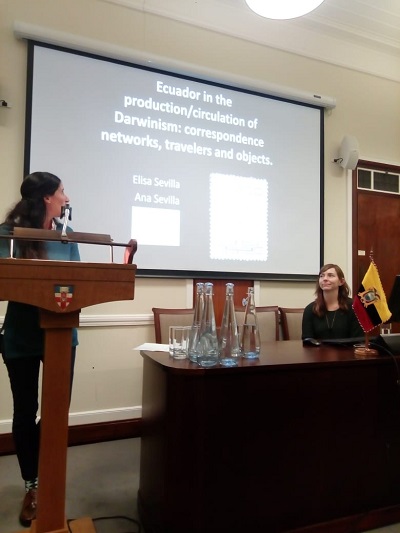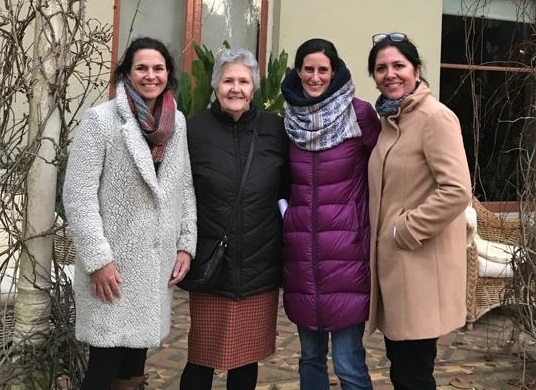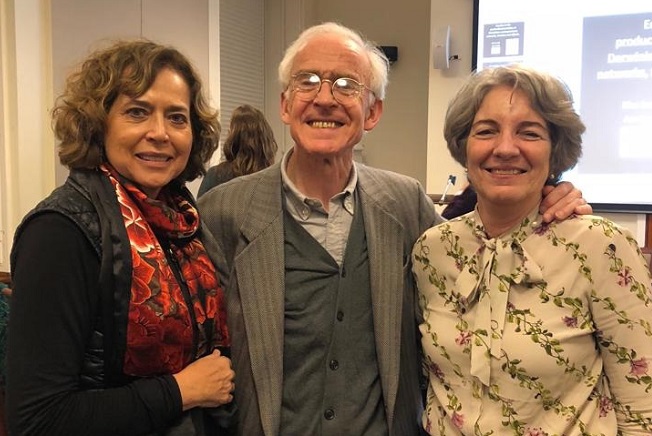By Dr. Elisa Sevilla (University of San Francisco, Quito)
The LAGLOBAL workshop on “Darwin, Darwinism and Latin America” took place on 31 October 2019 with the participation of leading scholars on Darwin and Darwinism in Latin America, including Prof. Rosaura Ruiz (Dean of Research, Universidad Autónoma de México), Prof. Heloisa Bertol Domingues (Director, Museu de Astronomia e Ciências Afins (MAST), Rio de Janeiro), Dr. Elizabeth Hennessy (University of Wisconsin) and Prof. Irina Podgorny (CONICET / Universidad de la Plata). We also had the privilege of hosting Randal Keynes, a descendent of Charles Darwin and member of the board of the GCT and avid promoter of UNESCO scientific heritage sites.

The papers discussed the travels of Darwin and the circulation of scientific concepts and practices in Latin America. For example, Rosaura Ruiz discussed the Mexican reception and deployment of Darwinian notions in political debates in the nineteenth century. Heloisa Bertol Domingues focused on the correspondence between Charles Darwin and Fritz Muller and Miller’s experiments and observations on Brazilian insects, and the importance that these played in the development of Darwin’s theory. Mr. Keynes discussed the personal experience of Charles Darwin and how he always remembered his voyage on the Beagle and South America. He also discussed and shared experiences at Downe House, and the participation of Darwin’s children in his experiments to explain the natural world. Mr. Keynes shared his projects to promote heritage sites that combine natural and cultural settings of science in the region. Dr. Hennessy, on the other hand, analysed how Darwin has been appropriated by both the Conservation movement and Tourism in the Galapagos. She noted that in contrast to the historical Darwin that ate Galapagos tortoises and collected specimens from the Islands, conservation ideas developed later.Irina Podgorny and Elisa Sevilla, on the other hand, traced the transnational circulation of objects and ideas. Podgorny analysed the relationship between science, commerce and fossil hunters between Argentina and Europe during the nineteenth century, noting the importance of Darwin’s publications in the identification of fossils by non-professional members of scientific networks. Sevilla analysed the circulation of Darwinism in the university and political circles where specimens and correspondence circulated between Quito, London, Edinburgh and Cambridge, USA.

One key objective of this academic event was to connect the research that is being undertaken in Latin America on Darwin and Darwinism with projects and scholars working on the subject in the U.K., particularly the Darwin Correspondence Project at Cambridge University. Alison Pearn, Associate Director of the Project, was the keynote speaker. Her lecture on “From ‘Immediate pleasures’ to ‘pictures in the mind’: Charles Darwin’s intimate encounters with South America” was of great interest. Based on Darwin´s book collection and correspondence, Pearn discussed Darwin’s experience in South America, as well as his network of correspondents, and his inspiration in Humboldt.
Several of the Latin American scholars participating in the event were invited by the Embassy and the Darwin family to visit Downe House. An additional field trip to explore Darwin’s correspondence held at Cambridge University rounded out yet another stimulating and multifaceted LAGLOBAL workshop. We hope to continue with this collaboration and to publish some of the work presented at ILAS in English.
Notes
Dr. Elisa Sevilla is a lecturer at the University of San Francisco (Quito, Ecuador) and convenor of the LAGLOBAL Workshop “Darwin, Darwinism and Latin America” held at ILAS on the 31 October, 2018 and sponsored by the Leverhulme Trust, the Embassy of Ecuador and the Galapagos Conservation Trust.
The views expressed in this article are the author’s own and do not necessarily represent the position of ILAS or the School of Advanced Study, University of London.


Recent Comments